
រដ្ឋ Kayin State មានព្រំដែនរដ្ឋជាមួយ Kayas (ពីដើមគឺជរាដ្ឋ Karenni) ជាឈ្មោះថ្មី ត្រូវបាន យោធាភូមារ ផ្លាស់ប្តូរនៅឆ្នាំ ១៩៨៧ ពី Karen State ទៅជា Kayin State វិញ។ មូលហេតុនៃការផ្លាសប្តូរ ដោយសារមានចលនាបៈបោរតាំងពីឆ្នាំ ១៩៤៧ គ្រាដែល មេដឹកនាំរដ្ឋ ការែន មិនព្រមចុះកិច្ចព្រមព្រៀងជាមួយ ភូមារ ជារដ្ឋចំណុះ តែចង់បានជាឈ្មោះរដ្ឋឯករាជ្យ គឺមិនចូលរួមការបោះឆ្នោតនៅភូមារឆ្នាំ ១៩៤៩ ហេតុនេះ ចលនាបៈបោរប្រដាប់អាវុធ កើតមានឡើង គឺកងទ័ព KNU/KNLA។ យោងតាមផែនទី នេះ សព្វថ្ងៃ ភូមារគ្មានឈ្មោះរដ្ឋ ការែន ទេ មានន័យថា កងទ័ព ការែនបៈបោរ ត្រូវប្រយុទ្ធជាមួយកងទ័ព កាយិន Kayin និង កងទ័ព ណៃពិដោ របស់ភូមារ។
ផែនទីរដ្ឋបាលដែនដីនៃ រដ្ឋកាយីន ចំនួន ០៧ ខេត្ត
ផែនទីរដ្ឋបាលដែនដីនៃ រដ្ឋកាយីន ចំនួន ០៧ ខេត្ត
ឆ្នាំ ២០២១ JAKARTA - Fierce fighting for several days between the Myanmar military regime forces and the Karen Border Guard Force (BGF), against the combined splinter groups of the:
- Democratic Karen Buddhist Army (DKBA),
- People's Defense Forces (PDF),
- Karen National Union/Karen National Liberation Army Peace Council (KNU/KNLA-PC),
- Karen National Defense Organization (KNDO) and
- Splinter BGF as well as in Myawaddy District, Karen State.
Clashes broke out on Tuesday in Phlu village, after the DKBA splinter group reportedly detained three police officers, including the city's police chief Waw Lay and a firefighter. The fighting has forced more than 400 residents into Mae Sot across the Thai border.
ប្រជាជន ការែន មានជាង ០៥ លាននាក់កំពុងរស់នៅតាមបណ្តាប្រទេសនានាដូចជា៖
ការដូរឈ្មោះ ពី ការែន ទៅជា កាយិន គឺជាប្រភពនៃជំលោះពូជសាស្រ្ត ។ ការកាត់ដី រដ្ឋ មន រដ្ឋ ការ៉ានី បញ្ជូនជារដ្ឋ កាយិន ក៍ជាជំលោះ។ សាសនាខុសគ្នា ក៍ជាជំលោះ ដែលនាំឲ្យមានការកងទ័ពច្រើនប្រភេទ ដែល កងទ័ព កាយិន Kayin/Karen ការែន ចែកជា ០៦ គឺ
- កងទ័ពគ្រឹស្ត KNU/KNLA Peace Council មានទ័ពប្រមាណ ២០០ នាក់
- កងទ័ពពុទ្ធសាសនា Democratic Karen Buddhist Army (DKBA) មានទ័ពប្រមាណ ៥,០០០ នាក់
- កងទ័ព Karen National Liberation Army (KNLA) មានទ័ពប្រមាណ ១៥,០០០ នាក់
- Karen National Union (KNU) មានទ័ពច្រើនជាង ៥,០០០ នាក់
- Karenni National People's Liberation Front (KNPLF )មានទ័ព ៤,០០០ នាក់
- Karenni National Progressive Party (KNPP) Or I(KNPP) កម្លាំងទ័ព ៧០០- ១,០០០ នាក់
មីយ៉ាន់ម៉ា : ក្រុម Cloud Wings បានចេញផ្សាយអំពីកំណត់ត្រាប្រតិបត្តិការមួយចំនួនពីការប្រយុទ្ធដើម្បីដណ្តើម យកកងវរសេនាតូចទី ៥៩៨ នៅ Shwe Kyin ថ្ងៃទី ១១ ខែ មេសា ឆ្នាំ ២០២៥ សហភាពជាតិការ៉ែន (KNU) និងកងកម្លាំងបដិវត្តន៍សម្ព័ន្ធមិត្ត (NUG) បានរួមគ្នាវាយប្រហារ និងដណ្តើមបានកងវរសេនាតូចទី 598 នៃក្រុមប្រឹក្សាយោធាភាគខាងត្បូង ក្រសួងការពារជាតិ និងទីបញ្ជាការយោធា PDF ហើយបានចេញប្រកាសនៅថ្ងៃនេះ។
ក្រុមយន្តហោះគ្មានមនុស្សបើក Cloud Wings ដែលបានចូលរួមក្នុងការប្រយុទ្ធដើម្បីវាយលុកយកជំរុំ ក៏បានចេញផ្សាយកំណត់ត្រាមួយចំនួនរបស់ខ្លួនពីប្រតិបត្តិការនៅល្ងាចនេះផងដែរ ។
របាយការណ៍បាននិយាយថា "ជោគជ័យរួមនៃកងកម្លាំងទាំងអស់ដែលបានប្រយុទ្ធជាមួយគ្នា ដោយប្រើដ្រូនឬយន្តហោះគ្មានមនុស្សបើករបស់ Cloud Wings បានវាយប្រហារដោយព្យាយាមអស់ពីសមត្ថភាពក្នុងការហោះហើរប្រយុទ្ធទើបទទួលបានជ័យជំនះ ។ កងវរសេនាតូចទី 598 នៃកងវរសេនាធំថ្មើរជើងលេខ 598 នៅ Shwe Kyin ត្រូវបានចាប់ខ្លួនទាំងស្រុងដោយកងកម្លាំងបដិវត្តន៍កាលពីថ្ងៃទី 8 ខែឧសភា ហើយយ៉ាងហោចណាស់សមាជិកនៃរបបយោធាចំនួន 30 នាក់ត្រូវបានសម្លាប់នៅក្នុងសមរភូមិ និងអាវុធមួយចំនួនធំក៏ត្រូវបានរឹបអូសផងដែរ។
- National Unity Government of Myanmar NUG
- The Karen National Union (KNU) signed and expressed its support for a National Unity Government (NUG) 20 January 2025 statement condemning cybercrime.
- the Karen National Liberation Army (KNLA)
ព្រំដែន ថៃ៖ កងពលកាំភ្លើងធំរបស់ ថៃ នៅយោធភូមិភាគទី ៣ ព្រំដែន ភូមារ កំពុង ត្រួតពិនិត្យ ពង្រឹងសមត្ថភាពប្រយុទ្ធ ដែលទំនងជា ត្រៀមសម្រាប់សង្រ្គាមព្រំដែន ជាមួយ ភូមារ។ ប្រទេសថៃ ធ្វើនយោបាយឈ្លានពានប្រទេសជិតខាងមួយនេះ ដោយគាំទ្រ រដ្ឋាភិបាលខុសច្បាប់ការ៉ែន។ កាលពី ៥០ ឆ្នាំមុន ការ៉ែន ជាទឹកដីរបស់ប្រទេសថៃ ដោយហេតុនេះ ប្រទេសភូមារ សម្រេចចិត្តដូរ បំបែក រដ្ឋការ៉ែននេះ ទៅជា រដ្ឋ ២ គឺរដ្ឋ កាយិន និង រដ្ឋកាយ៉ាស់ គឺលែងមាន ឈ្មោះជនជាតិ ការ៉ែន ពីព្រោះជនជាតិ ការ៉ែន គឺជា ជនជាតិ ថៃ។ សំអាងហេតុផលនេះ ថៃ គាំទ្រចលនាបេះបោរ ការ៉ែន។ កងទ័ព ណៃពិដោរបស់ភូមារ បាននឹងកំពុងព្យាយាម វាយលុកគ្រប់គ្រង រដ្ឋាភិបាលព្រៃការ៉េន នៅ សួនឧស្សាហកម្ម Scammer KK Park ជាប់ព្រំដែន ថៃ តែចូលមិនចុះតាមជើងគោក គឺមានតែការទំលាក់គ្រាប់បែក កំទេច ទីតាំងទាំងនោះ។
ថៃ ភូមារ៖ មានការផ្ទុះអាវុធ នៅព្រំដែន ថៃ ភូមារ តំបន់ខេត្ត តាក់ Tak Province របស់ថៃ។ ពីម្សិលមាន ជនបរទេសរាប់រយនាក់ចម្រុះជាតិសាសន៍ រត់ឆ្លងព្រំដែនចូលមកក្នុងទឹកដីថៃ ដែលមាន ការជួយសង្រ្គោះ ការការពារ នឹងដឹកជញ្ជូន ពួកគេមកទីក្រុង បាងកក។ កងទ័ពព្រះពុទ្ធសាសនាការ៉ែន DKBA the Democratic Karen Buddhist Army (DKBA) និង កងទ័ពថៃ ត្រូវបាន សហរដ្ឋអាមេរិកដាក់ទណ្ឌកម្មសេដ្ឋកិច្ច ពីបទ បើក Scamer Online។ កងទ័ព DKBA បន្ទាប់ពីរងការវាយប្រហារពី រដ្ឋាភិបាលភូមារ ណៃពិដោ មក បានធ្វើការ ចុះចូលជាមួយ រដ្ឋាភិបាល ភូមារ ធ្វើឲ្យមានការផ្ទុះអាវុធ ជាមួយ កម្លាំងរដ្ឋាភិបាលព្រៃផ្សេងៗទៀត បណ្តាលឪ្យ ធ្លាក់ចំលំនៅដ្ឋាន សាលារបស់ ប្រជាជនថៃ ហេតុនេះ កងទ័ពថៃ ចេញមកធ្វើការចរចារ ជាមួយទ័ព ព្រះពុទ្ធសាសនា DKBA ។ កងទ័ពថៃសព្វថ្ងៃ បង្ករសង្រ្គាមជាមួយ ប្រទេសជិតខាង តាមរយៈផ្តល់ការគាំទ្រផ្នែកនយោបាយ អាវុធដល់ ក្រុមប្រឆាំង ដូចជាករណី ភូមារ អាចមាននៅកម្ពុជា និង ឡាវ ដែរ ??? !!!
រដ្ឋ Kayin State ( Karen ការ៉ែន)


































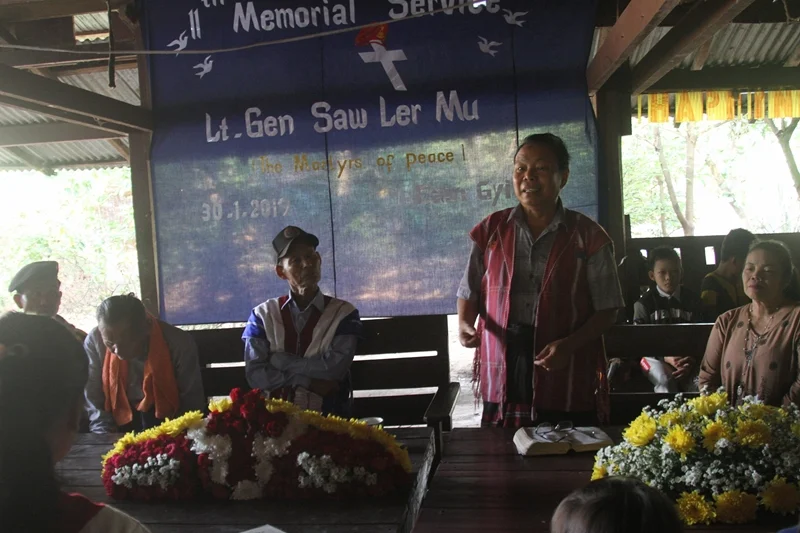


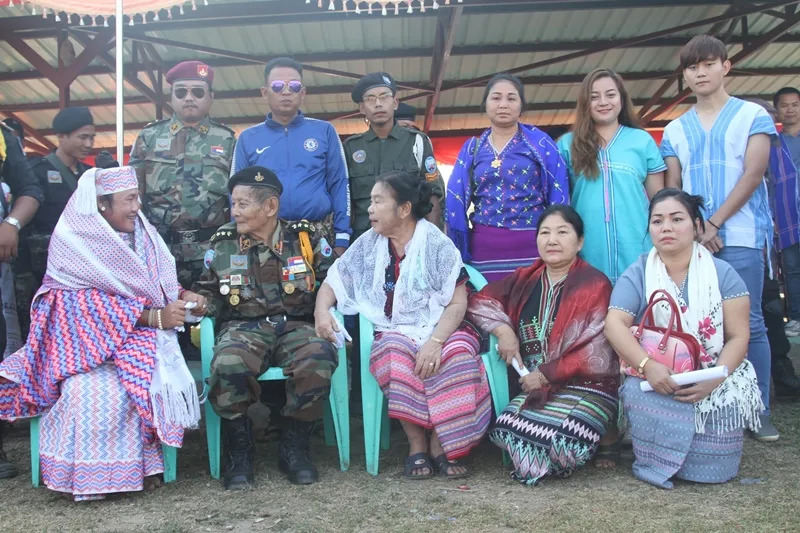





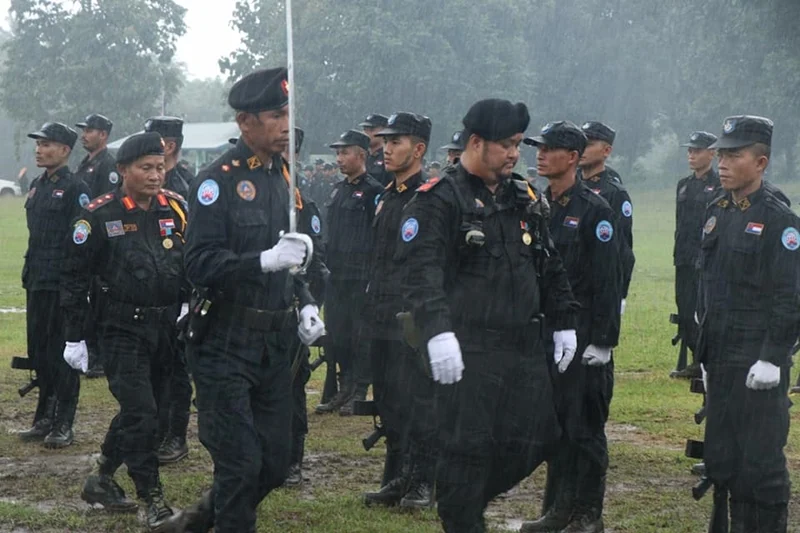
















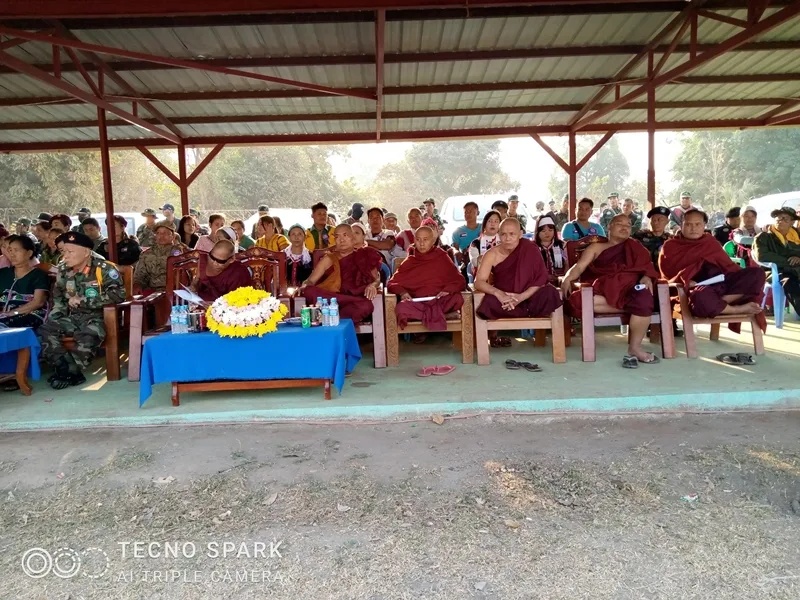





















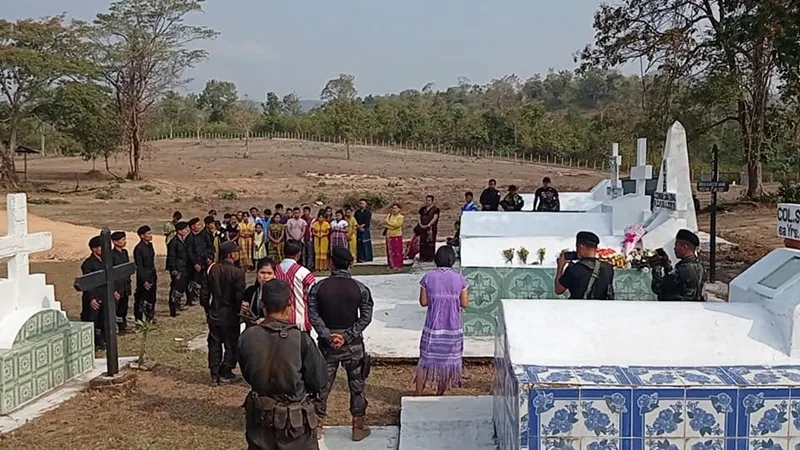



















No comments:
Post a Comment